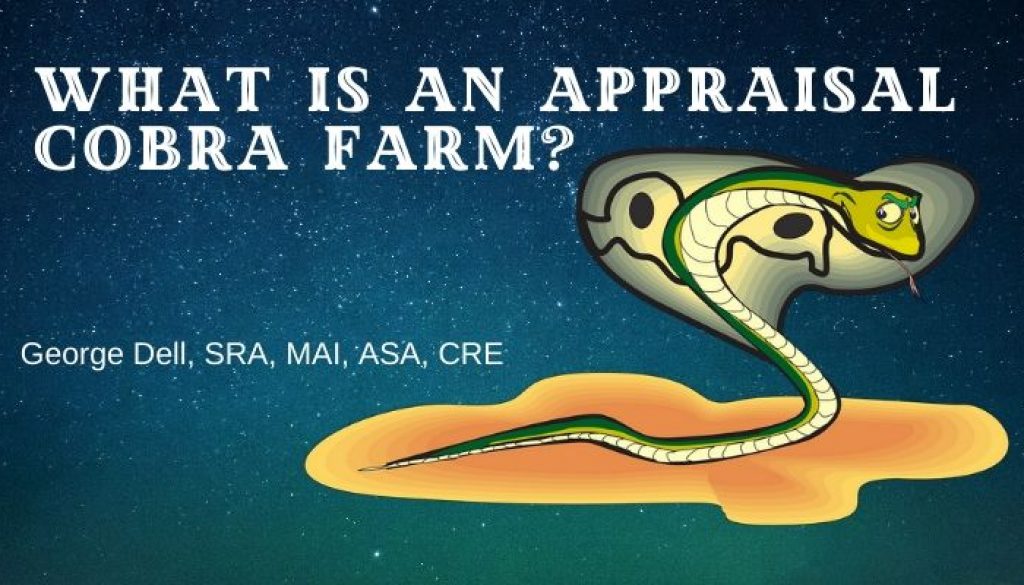A cobra farm raises and sells cobras to the government, whose objective is to control cobras in the wild.
OK, lets try this again . . .
Jeremy Bagott, MAI, AI-GRS was our guest speaker at the 2nd annual meeting of the Community of Asset Analysts – in Oakland on October 28, 2020.
Jeremy just published a book entitled “Dispatches from the Cosmic Cobra Breeding Farm.” It’s fascinating, explaining much of how the appraisal profession is being taxed, fee’d, regulated, controlled, shamed, credibled, and adjusted into history.
Like the Boston Tea Party, where rebellious upstarts dumped British tea into the harbor, it appears that we will soon have a dump into the foundation of the appraisal profession.
During the British empire’s rule of the Indian subcontinent, there was a venomous cobra problem. As always, the government took action. To get rid of cobras, they offered a bounty for each dead cobra brought in. An easy and effective solution. Less cobras, a safer Delhi.
Problem. Greedy people find ways to make money. Idea: “Let’s raise cobras!”
Good ol’ supply and demand. A government engineered demand at a known price. All we need is to raise cobras. They breed every 60 days. A windfall!
Problem. The government took action. Stopped this greedy response. Stopped the cobra bounty payments. Problem. No more market for cobras. Solution. “We will free the cobras,” said the cobra farmers.
Darn. Another unintended consequence. A reverse consequence.
Does this sound like appraisal regulation? Bad loans — it must be those pesky appraisers. We must make laws about ethics, have licensing, and establish minimum standards. Minimum standards. (Before that we did have organizations like the AIREA, SREA, ASFMRA, and ASA) which promoted higher standards. Higher standards . . . Hmmm . . .
Lender agents and others, of course, gravitated to “Let’s Make a Deal”. How bad can the risk be?
Was this a problem for appraisers? No. Appraisers work scope requirement is meet “users” expectations. And “peer’s actions,” Not best practices. Do what everyone does, and what appeals to the client.
In spite of these loose, minimal standards, appraisers continued to be taxed and fee’d, at increasing levels and regulatory overhead and overwhelm. But others discovered that they could provide value opinions, and pay no such fees. And they had no real valuation standards or required ethics. They are called AVMs, BPOs, Evaluations, exemptions, and hybrids. Checklists replaced professional reviews – performed by checklist checkers and “administrative” reviewers.
It appears that government statutes, regulations, and the “congressionally authorized” Uniform Standards of Professional Appraisal Practice (USPAP), and the nonprofit that controls USPAP and licensing — have bountied licensed appraisers, and pushed valuation users to other less fee’d, taxed, ethic-ed: un-licensed, un- E&O insured and un-standarded competitors.
No more appraisal cobra farms.
George Dell and his staff are not affiliated with Amazon.com.
